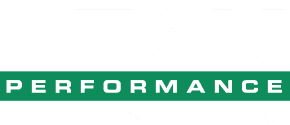For many, exercise is a way of life. A great exercise program can increase fat free mass, lower blood pressure, and stimulate cognitive function. On the other hand, poor exercise selection can result in injury, over reaching and over training. Let’s start by defining over training (OT) and how you can select the right program to avoid OT.

OT is defined as excessive frequency, volume or intensity which can result in extreme fatigue, illness or injury (which is often due to lack of sufficient rest, recovery, and perhaps nutrient intake). There are two types of OT: aerobic endurance and resistance training. The first type, aerobic endurance OT, results predominantly from an excessive volume overload related to cardiorespiratory exercises. Such exercises may include running, walking, or cycling. Training within the appropriate heart rate zone is necessary to avoid OT and equipment like a heart rate monitor works great for those high intensity settings to avoid over training syndrome (OTS). For prevention of overtraining, an important component would be a properly planned periodization program. A periodization training model will strategically vary the specificity, intensity, and volume of prescribed exercises. The goal of this time of program is to maximize aerobic and strength gains while reducing the risk for injury and over training.
The second type of OT is resistance OT. Resistance OT primarily results from excessive high-intensity overload or too many repetitions using heavy weights or too rapid a rate of progression. For prevention of OT, an important component would also be a properly planned periodization program. Working with an Exercise Physiologist is critical to help develop and progress said program appropriately. Different types of OT (aerobic, resistance) have been reported to have different signs and symptoms, although performance decrements are a key common aspect of both.
There is a high degree of variability between individuals with regard to developing OT. Training practices that cause some individuals to thrive may lead to over training in others. It is critical to have sufficient rest between training days to facilitate the recovery process. The amount of rest, however, depends on the duration and intensity of the training program and should be individualized for each person. Periods of high-volume or high-intensity training especially require sufficient recovery.
Brandon Ayala, CSCS
Source: www.nsca.com

